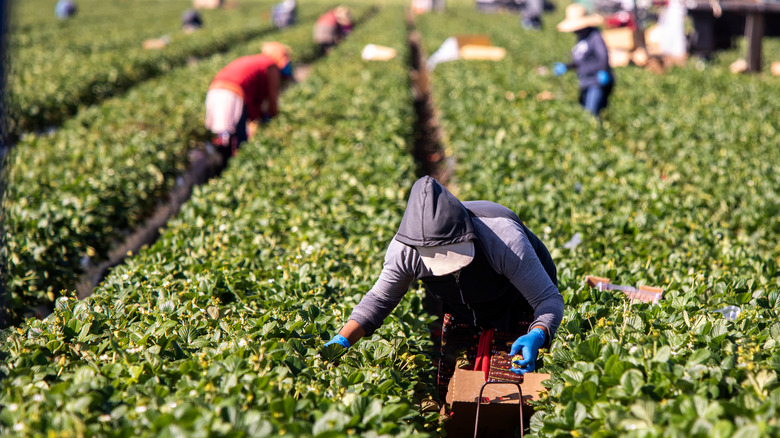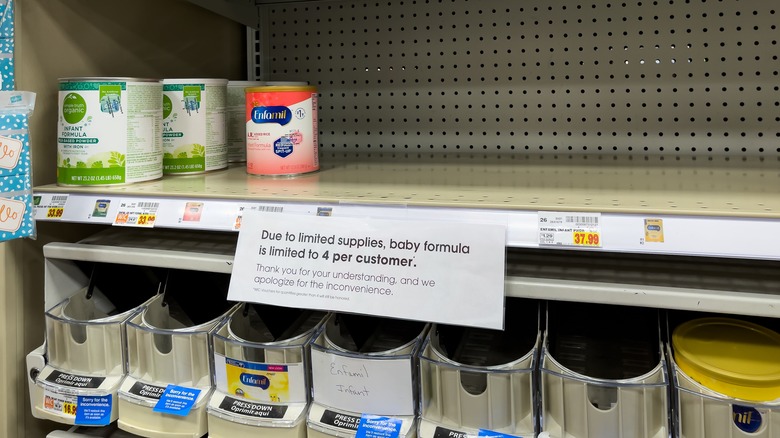The Formula Shortage Presents A Unique Crisis For Undocumented Farmworkers
The nationwide baby formula shortage, spawned by an FDA warning of bacterial infections at Abbott Nutrition's Michigan plant, has been a major inconvenience for some — and a life-threatening crisis for others. Since the February 2022 recall of baby formulas and a separate weather-related mid-June shutdown at the same plant, parents are cautiously optimistic of increased availability. The Michigan facility reopened again in early July, per CBS News, but the entire incident has spotlighted a deep-seated problem for vulnerable, undocumented farmworkers in America.
According to USDA statistics, 48% of hired crop farmworkers in the United States have no legal authorization to work in the country. And because a significant 80% of crop workers overall are "settled" rather than "migrant," which means they supply farm labor at a location that can be up to 75 miles from where they live, many of their families — including their babies — are faced with unsettling circumstances.
Farmworker parents hit hard
Parents across the board feel the impact of baby formula shortages. But those in urban or small-to medium-sized communities typically have better access for quickly snagging available supplies. Farmworker families rarely have that luxury. Many live in what CNN calls "food desert areas" near the fields, with limited access to essential food supplies. As low-wage laborers, the relative cost of chasing elusive tips on formula availability from store to store or town to town is extraordinarily prohibitive. It could also threaten their jobs due to missed work hours.
So why not just breastfeed? It's not that simple. Farmworkers who could otherwise opt for breastfeeding face insurmountable hurdles. Crop work can require up to 13 hours of consistent labor, explains CNN, with few breaks for breastfeeding a baby who's nowhere near the hot, dusty fields. Some parents live in cramped communal trailer homes non-conducive to breastfeeding and most have limited healthcare access or funding for breast pumps.
As limitations on baby formula access tumble from one month to two, and so-on, field-worker hardships continue, particularly for infants with special dietary needs. In a June 22 press release, the FDA acknowledged the severity of medical conditions requiring life-sustaining specialty baby formulas that are in short supply. The June weather event at the Abbott factory once again halted the production of EleCare formula for babies with allergy and digestive problems, but the company announced production restoration in the first week of July, per CBS News.

